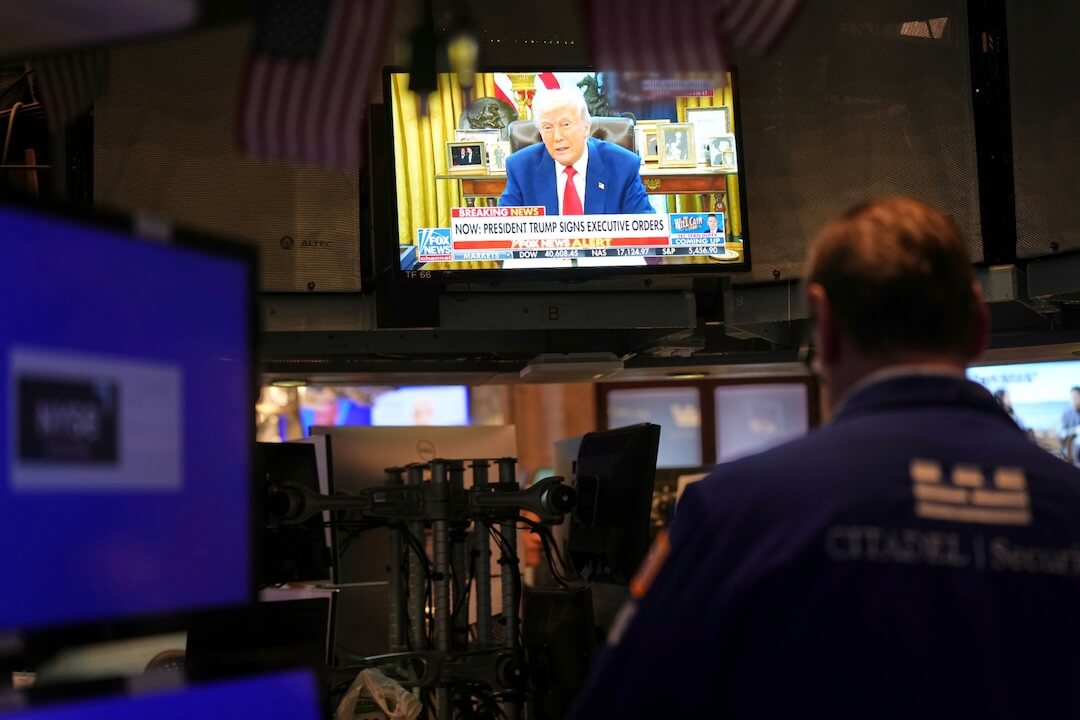Here’s a lead that will knock your socks off.
From CNN’s Donie O’Sullivan, Clare Duffy and Brian Fung: “Twitter has major security problems that pose a threat to its own users’ personal information, to company shareholders, to national security, and to democracy, according to an explosive whistleblower disclosure obtained exclusively by CNN and The Washington Post.”
Yikes!
The Washington Post’s Joseph Menn, Elizabeth Dwoskin and Cat Zakrzewski wrote that whistleblower Peiter “Mudge” Zatko “depicts Twitter as a chaotic and rudderless company beset by infighting, unable to properly protect its 238 million daily users including government agencies, heads of state and other influential public figures.”
It’s a stunning whistleblower complaint, which was filed last month to Congress and federal agencies.
The Post wrote that among the most serious complaints is that “Twitter violated the terms of an 11-year-old settlement with the Federal Trade Commission by falsely claiming that it had a solid security plan. Zatko’s complaint alleges he had warned colleagues that half the company’s servers were running out-of-date and vulnerable software and that executives withheld dire facts about the number of breaches and lack of protection for user data, instead presenting directors with rosy charts measuring unimportant changes.”
CNN went on to write that the complaint, “paints a picture of a chaotic and reckless environment at a mismanaged company that allows too many of its staff access to the platform’s central controls and most sensitive information without adequate oversight. It also alleges that some of the company’s senior-most executives have been trying to cover up Twitter’s serious vulnerabilities, and that one or more current employees may be working for a foreign intelligence service.”
CNN also added, “While the disclosure to Congress is edited to omit sensitive details pertaining to the national security claims, a more comprehensive version with supporting documents has been delivered to the Senate Intelligence Committee and to DOJ’s national security division, according to the disclosure.”
Twitter fired Zatko in January for what it claims was poor performance. Zatko says his whistleblower complaint comes after he tried to warn Twitter’s board about security concerns. The complaint also alleges Twitter emphasized user growth over reducing spam. Zatko, who was hired by former CEO Jack Dorsey in late 2020 after Twitter was the victim of a major hack, told the Post, “I felt ethically bound. This is not a light step to take.”
CNN’s Brian Fung detailed how the whistleblower claim shows Twitter might be vulnerable to exploitation by foreign governments. Fung, citing the complaint, wrote that Twitter “may even have foreign spies currently active on its payroll.”
Fung wrote, “From taking money from untrusted Chinese sources to proposing the company give into Russian censorship and surveillance demands, Twitter execs including now-CEO Parag Agrawal have knowingly put Twitter users and employees at risk in the pursuit of short-term growth, Zatko alleges.”
How else might it impact national security? Garrett Graff, a CNN analyst and contributing editor at WIRED, told CNN’s “New Day” that misinformation spreading quickly on Twitter is a big concern. He said, “Twitter, in many ways, is where wars can start in this moment. The information could move there faster in an attack than anyone would be able to respond to.”
A Twitter spokesperson said, “What we’ve seen so far is a false narrative about Twitter and our privacy and data security practices that is riddled with inconsistencies and inaccuracies and lacks important context.”
A question that has quickly come up since this news broke: What might this mean for Elon Musk? The world’s richest man attempted to take over the company, but has since tried to back out of the deal.
After the CNN and Post stories were published, Musk tweeted a photo of the Disney character Jiminy Cricket with the words, “Give a little whistle.” He then posted a screenshot of part of the Post story and wrote, “So spam prevalence *was* shared with the board, but the board chose not disclose that to the public.”
CNN’s Clare Duffy wrote, “… the new disclosure could help bolster Musk’s argument and potentially encourage the court to pay closer attention to the bot issue. Moreover, Musk’s legal team could attempt to seize on other claims in the disclosure unrelated to bots — including allegations that Twitter made misrepresentations to regulators such as the Federal Trade Commission and Securities and Exchange Commission about its privacy and security practices — as additional reasons he should be able to walk away from the deal.”
Duffy’s story is long and extremely detailed, so be sure to check it out.
Meanwhile, the Post’s Joseph Menn has more on Zatko in “Twitter whistleblower won hacker acclaim for exposing software flaws.” And CNN had the first on-air interview with Zatko.
Troubling study
Members of the union that represents New York Times employees say that their analysis shows Black and Latino staffers at the Times are less likely than white staffers to receive strong job ratings.
NPR’s David Folkenflik, who read the study before it was released, wrote, “There are financial consequences to job ratings because they influence the size of employee bonuses, the NewsGuild union says. But staffers tell NPR the differential is even more important because it indicates an underlying systemic problem that the paper is failing to address. It is demoralizing, they say, and contributes to the premature departure of some colleagues.”
The study goes back to 2018. The NewsGuild report says that being Hispanic reduced the odds of receiving a high score by about 60% and being Black cut the chances of high scores by nearly 50%.”
Ben Casselman, an economics reporter for the Times and a member of the guild who participated in the analysis, told Folkenflik, “We started this analysis nearly two years ago from a place of honest inquiry. We wanted to know whether there were racial disparities. We hoped the answer would be no. Obviously that wasn’t the case.”
Casselman added, “The Times is far from unique here. The Times is trying to build a more diverse staff. I believe they really mean that. But building a diverse staff means more than hiring a diverse staff. … This whole process has been evidence there’s still a long way to go on all the rest of it.”
Folkenflik wrote, “Testimonials shared with NPR from Times journalists offered some texture for their objections. Many journalists told the union of the bewilderment they felt at what they said were sharp gaps between glowing evaluations from editors and their numerical scores at the end of each year.”
In a statement, New York Times spokesperson Danielle Rhoades Ha said, “Having an equitable performance evaluation system is one of the most important levers we have to ensure we are developing and supporting the growth of our employees in a fair manner. We’re committed to a performance evaluation system that is fair and equitable, and we have been working to continuously improve it. The NewsGuild raised a similar issue last year about our ratings and we undertook our own expert analysis which gave us confidence that our ratings were not applied in a discriminatory way. The NewsGuild has recently shared highlights of a new study, which we are in the process of reviewing.”
Rhoades Ha added, “This is important and ongoing work that requires subject matter expertise and full-time focus. In February 2021, we issued a report and multi-year action plan to make the company a great place to work for everyone. We’re deep into implementing that plan, including hiring new heads of talent management and compensation and benefits, and we’ve created two new departments — Inclusion, Strategy and Execution in HR and Culture and Careers in the newsroom. They are working to introduce additional improvements to the cycle for 2022 and beyond.”
Empire of Influence

Rupert Murdoch, middle, and his sons Lachlan, left, and James, right, in 2020. (Photo by: DP/AAD/STAR MAX/IPx)
CNN announced Tuesday that its seven-part series about the Murdoch Family, owners of Fox Corp., will air this fall. The CNN original series titled “The Murdochs: Empire of Influence” launches with a two-episode premiere Sept. 25 at 9 and 10 p.m. Eastern on CNN.
The series is based on a 2019 New York Times Magazine article written by Jonathan Mahler and Jim Rutenberg. The series looks at Rupert Murdoch, his family and the media empire he has built. In announcing the launch, CNN writes that the series “goes behind the scenes of the improbable rise of a media tycoon, his outsized influence around the globe, and the intense succession battle between his children over who will inherit his throne.”
Media tidbits
- Variety’s Brian Steinberg with “Broadcasters Boost Afternoon News in Bid To Thwart Streaming Rivals.”
- Last Sunday’s “Reliable Sources” on CNN drew 769,000 viewers overall, making it the network’s most-watched show that day. It was the final “Reliable Sources” — CNN announced last week that the show has been canceled after 30 years on the air.
- Speaking of “Reliable Sources,” The Daily Beast’s Lachlan Cartwright with “CNN Staff Fears Right-Wing Billionaire Will Turn It Into a Dumpster Fire.”
- Iowa Public Radio’s Zachary Oren Smith with “U.S.’ largest newspaper owner cuts Iowa staff, leaving small papers’ futures in question.”
- Mediaite’s Alex Griffing with “Ron DeSantis’s ‘Top Gov.’ Ad Attacking the Media Goes Viral For All the Wrong Reasons.”
Hot type
Rolling Stone’s Brittany Spanos with “How Harry Styles Became the World’s Most Wanted Man.”
Variety’s Zack Sharf with “Best Movies Never Made: ‘Suspiria 2,’ ‘Kill Bill 3,’ ‘Star Wars: Duel of the Fates’ and More.”
The Ringer’s Alan Siegel looks back at the cringiest episode ever of “The Office” in “Dashed Dreams, Empty Promises, and Laptop Batteries.”
Have feedback or a tip? Email Poynter senior media writer Tom Jones at tjones@poynter.org.
More resources for journalists
- Subscribe to The Collective — Poynter’s monthly newsletter for journalists of color by journalists of color.
- Learn how to suss out misinformation online like a fact-checking pro in one week with MediaWise’s free Find Facts Fast text message course.
- Power of Diverse Voices: Writing Workshop for Journalists of Color (Seminar) Nov. 10-13 — Apply by Aug. 29.
- Poynter’s Leadership Academy for Women in Media (2023) (Seminar) — Apply by Sept 9.
The Poynter Report is our daily media newsletter. To have it delivered to your inbox Monday-Friday, sign up here.







